G-20 Summit 2023: A Triumph in the Making from PM Modi
Set to commence tomorrow, the G-20 Summit 2023 is poised to be a spectacular success. Why are his "lean and hungry" detractors finding no audience for their critiques?
Introduction
As the world's attention converges on India for the G-20 Summit on the 9th and 10th of September 2023, it's clear that the nation is not merely a stage but a key actor in the unfolding global drama. Under the dynamic and visionary leadership of Prime Minister Narendra Modi, India is set to host an event of unparalleled significance, a far cry from its earlier stints as a diplomatic host. When one recalls the iconic 1983 NAM and CHOGM Summits held in the Indira Gandhi-era, the evolution is evident. These past milestones, which took place in the more understated Vigyan Bhawan, were significant for their era but present a vivid contrast to the modern, burgeoning India of today.
The venue of this year's G-20 Summit encapsulates this transformation in no uncertain terms. Shifting from the modest Vigyan Bhawan, the summit will unfold in the newly inaugurated Bharat Mandapam Convention Centre, located in the modernized Pragati Maidan Complex. This architectural wonder is not just a testimony to India's infrastructural capabilities, but also a symbol of its soaring ambitions on the global stage.
The choice of this extravagant venue reflects India's strategic importance and newfound confidence, epitomizing a blend of modernity and tradition that encapsulates the essence of a resurgent India. Far from the circumscribed locations of the past, the G-20 working groups have been meeting across the nation, even in places like Srinagar, which were previously considered off-limits due to security constraints. This significant change not only portrays India's readiness to engage with the world but also its capability to do so on its own terms, all under the adept and transformative leadership of Prime Minister Narendra Modi.
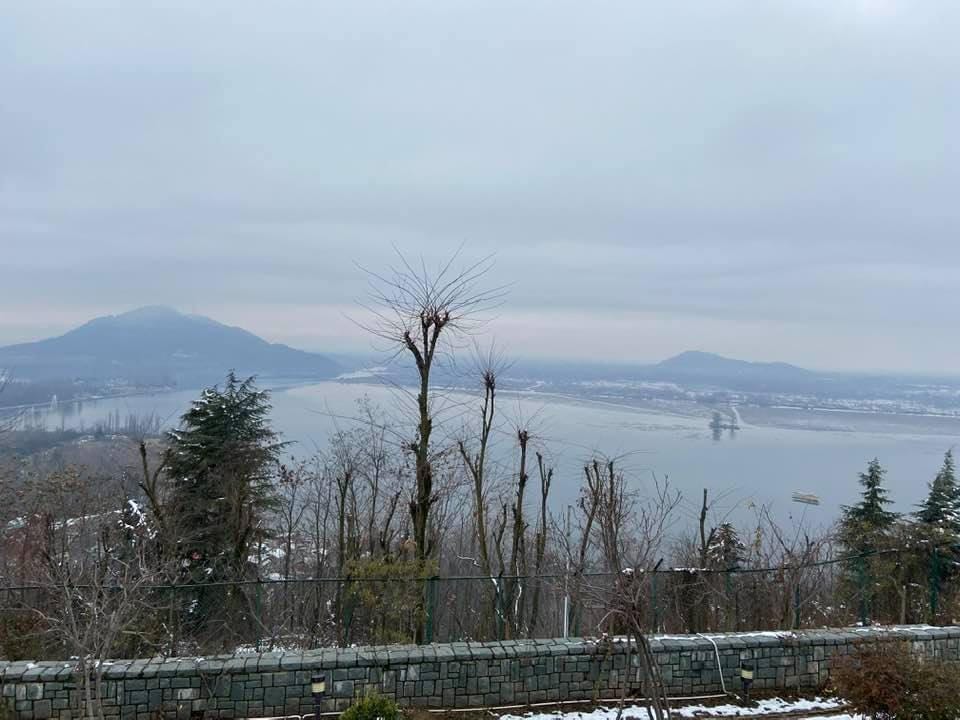
Why G-20 Matters: India's Global Stage
Indeed, while the G-20 is often touted as an economic forum, its scope and implications stretch far beyond mere financial cooperation. Under the stewardship of Prime Minister Narendra Modi, the summit becomes a strategic chessboard where high-stakes diplomacy and intricate geopolitics play out alongside economic dialogues. This is particularly significant in the backdrop of ongoing global crises, such as the Russia-Ukraine conflict, which underscore the necessity for collaborative problem-solving and political negotiation. India's presidency at the G-20 isn't just an elite membership; it serves as a robust platform that positions India at the high table of international diplomacy. This could be a pivotal moment in strengthening India's long-standing bid for a permanent seat at the United Nations Security Council.
Moreover, the summit is an unrivaled opportunity for business interactions. Accompanying the world leaders are top-tier business moguls and industry tycoons, making it a hotbed for forging new trade alliances, attracting foreign investments, and establishing commercial partnerships. Given that India is projected to soon become the world's third-largest economy, the summit offers a chance to showcase its economic prowess and investment opportunities to global stakeholders.
Thus, the G-20 Summit is not just an event but a strategic opportunity for India—essentially a multi-layered platform for economic collaboration, diplomatic relations, and geopolitical maneuvering. The charismatic leadership of Prime Minister Modi ensures that India is not just participating but is central to shaping the discourse. This is India's moment to not just shine but to lead, illuminating a path towards a future filled with untold possibilities.
Modi's Hands-On Leadership
The meticulous involvement of Prime Minister Narendra Modi in orchestrating the Summit's preparations elevates the event from a mere gathering to a seminal moment in India's modern history. This is not merely administrative diligence; it's a clarion call to the world, signaling India's unyielding developmental ascent. Modi is leading from the front, an emblem of assertive governance and dynamic leadership, committed to making this Summit not just another event but an epoch-making occasion.
The scale and intricacy of the coordination involved are staggering. Various Ministries of the Government of India are not just contributing but are actively aligned, orchestrated by the Ministry of External Affairs, which serves as the nerve center for this herculean effort. Each state government within whose jurisdiction sub-group meetings have been held is also an active participant in this colossal undertaking. This multi-layered interplay between the central government and the states ensures a cohesive narrative and operational fluidity, vital for the Summit's success.
And let's not underestimate the Prime Minister's ability to balance a packed itinerary of foreign tours and domestic engagements, including Parliamentary sessions. Amid this whirlwind of activity, he remains hands-on in guiding the Summit's preparation, undeterred even by the upcoming special session of Parliament slated for September 18-22. His indefatigable commitment underlines the importance attributed to the Summit, making it clear that for Modi and his administration, this is not just about economic or diplomatic gains; it's about charting a new course for India on the global stage
The Petty Detractors: The Art of Finding Fault Where There is None
As India prepares to host this momentous G-20 Summit, the air is thick with anticipation and resounding applause for the Herculean efforts involved. Yet, amidst this symphony of commendation, there are those who strike a discordant note. These self-proclaimed critics, essentially non-entities in the grand scheme of things, are trying to seize this platform to make their presence felt. Rather than contributing to the nation's progress, they are intent on piggybacking on this monumental occasion by fostering a contrarian narrative. It's almost as if their raison d'être is to find fault where there is none, effectively becoming background noise in an otherwise harmonious melody of national pride and aspiration.
Opposition Leaders: Masters of Misinterpretation
In the midst of this epochal event, the opposition appears to have honed its skills in creating controversies where none exist, missing the forest for the trees. Their recent furore over the Summit's invitation employing the term "Bharat" instead of India serves as a case in point. This ostensibly trivial issue has been inflated into a topic of national debate, diverting public attention from the Summit's substantive goals and agendas. Moreover, this hyper-focus on semantics exposes their limited understanding of India's own constitutional provisions. Article 1 of the Constitution unequivocally states, "India, that is Bharat, shall be a Union of States," a fact they would do well to remember before making baseless arguments.
What their nitpicking reveals is not just a disinterest in contributing to the substantial matters at hand, but an underlying deficiency in their political critique. While the world is watching India's ascent on the global stage, it is disheartening to see the opposition engage in trivial controversies rather than offering constructive feedback or fostering bipartisan support for an event of such magnitude. Such superficial criticisms, far from adding value, only serve to underline their misplaced priorities at a time when India is asserting its role on the world stage.
Left-leaning Journalists: Distorted Narratives
Some segments of the media, particularly those with a left-leaning bias, have launched criticisms against the government's urban revitalization efforts in Delhi, specifically the clean-up of the streets. These journalists have been quick to label these actions as snatching the livelihoods of the poor, painting a distorted narrative that conveniently sidesteps the holistic view of the government's initiatives.
What these critiques often fail to acknowledge is the government's concerted efforts to provide displaced individuals with suitable and dignified alternatives. Various rehabilitation programs, temporary shelters, and skill development initiatives have been set up to ensure that the affected population is not left stranded but is rather given opportunities to integrate back into society. In painting the government as solely responsible for social disruption, these journalists overlook the multi-faceted approaches that have been implemented to balance urban aesthetics with social responsibility.
Their selective storytelling not only undermines the comprehensive measures taken by the administration but also muddies the public's understanding of a complex issue. This one-sided reporting does a disservice to ethical journalism by forsaking nuance in favor of sensationalism, ultimately undermining the larger picture of India's progress and the betterment of its citizens.
Critics of Security Measures: Faux Advocates of Civil Liberties
In an era of heightened global risks, the stringent security measures put in place for the G-20 Summit should not only be expected but welcomed. However, a faction of critics, often masquerading as champions of civil liberties, are swift to voice their objections. They question the necessity of such protocols, invoking concerns of 'police state' tactics and infringement on personal freedoms.
These criticisms lack a nuanced understanding of the balance that must be struck between individual liberties and collective security, especially in the context of a high-stakes international summit. This is hardly the first occasion when Delhi has tightened its security apparatus. Major public events, visits by foreign dignitaries, and even national holidays often necessitate similar arrangements. Moreover, these security protocols are guided by international best practices and coordinated by multiple agencies to ensure the safety of not just the summit participants but the general populace as well.
It's crucial to remember that the primary objective of these measures is to mitigate an array of threats that could disrupt the Summit and put lives at risk. These faux advocates of civil liberties tend to overlook the broader implications of a security failure, which could have dire consequences not just for India but for international peace and stability. By questioning these necessary precautions, they contribute to a misleading narrative that could potentially compromise the effectiveness of the security measures in place.
Opportunistic Politicians: Sowing Division
As India takes on the monumental task of hosting the G-20 Summit, a stage that offers an unparalleled opportunity to exhibit national unity and progress, certain politicians are seizing this moment to advance their own agendas. Far from constructive criticism, their remarks often portray India as a fragmented society, marred by internal conflicts. These calculated moves are nothing short of attempts to tarnish India's global image and undermine the leadership of Prime Minister Narendra Modi at a time when the country should be presenting a united front.
These opportunistic politicians often opt for sensationalist statements that can easily be amplified by social and traditional media. Their comments, though lacking in substance, are designed to be provocative, triggering divisive debates that distract from the critical issues at hand. They aim to create a spectacle that overshadows the substantive dialogues and negotiations taking place at the summit.
By introducing irrelevant and divisive topics into the discourse, these politicians not only dilute the focus of the summit but also misrepresent India's rich diversity and social fabric on a global platform. Their actions amount to a betrayal of national interests at a time when the country has the world's eyes upon it. What they fail to grasp is that the G-20 Summit is not just a fleeting event; it is a strategic juncture that could influence India's geopolitical standing for years to come. Their divisive politics, thus, do a disservice to the nation at a time when unity and constructive engagement are of the essence.
Obsolete Diplomats and Bureaucrats: Stuck in the Past
At a moment when the country is setting a new benchmark for diplomatic engagements, some retired bureaucrats and diplomats appear to be locked in a time warp, questioning the Summit's scale and intent. Their criticisms often pivot around the argument that such grand events are merely extravagant showcases with no substantive outcomes. However, this perspective reveals a failure to appreciate the multiplicity of opportunities and long-term benefits that an event of this magnitude offers, not just for India but for the global community at large.
In a rapidly changing geopolitical landscape, where old alliances are shifting and new partnerships are forming, hosting the G-20 Summit offers India a crucial platform for strengthening diplomatic relations and charting the course for economic policy. The Summit isn't just a meeting of world leaders; it's a congregation of policy experts, industry titans, and civil society, aimed at shaping global governance and trade norms for the years ahead. A platform this powerful shouldn't be undermined by criticisms rooted in outdated understandings of diplomatic utility.
These detractors, often buoyed by a sense of nostalgia for simpler times, fail to see the dynamic nature of modern diplomacy and the complex challenges that the world currently faces. Their focus on the perceived extravagance of the Summit sidesteps the potential for India to catalyze important conversations around sustainability, economic cooperation, and social justice, among other pressing issues. In essence, their criticisms risk diminishing the significance of an event designed to position India as a critical player in shaping the post-pandemic world order.
The Charismatic Modi: Unfazed by Criticism
In an era marked by turbulence and unpredictability, Prime Minister Narendra Modi stands as a beacon of resilient leadership, deftly navigating India through challenges both domestic and international. Critics may abound, but Modi's focus remains undeterred, much like Winston Churchill's description of unwavering commitment to one's goals. For Modi, criticism is not a roadblock but a stepping stone to evaluate, adapt, and forge ahead.
Unperturbed by the naysayers, Modi's comprehensive vision for India is a testament to his leadership qualities. His micro-level involvement in the preparation for the G-20 Summit serves as just one example of his hands-on approach to governance. From coordinating with multiple ministries to aligning state governments for various sub-group meetings, his dedication is pervasive. Even amidst his other critical engagements, including foreign diplomacy and parliamentary sessions, Modi has ensured a coordinated and full-throttle preparation for the Summit.
Perhaps what distinguishes Modi most starkly from his critics is his ability to turn challenges into opportunities. His leadership doesn't merely react to criticisms; it responds by fostering dialogue, galvanizing action, and fortifying India's position on the global stage. And in doing so, he underscores the notion that leadership is not about avoiding criticism but rising above it to deliver transformative change. Critics may choose to focus on the trees, but Modi's gaze remains fixed on the forest—a vision for a better India and a better world.
Conclusion: Towards a Momentous Summit
As we lend our wholehearted support to Prime Minister Modi and his team in preparation for this milestone event, let's not forget the profound weight of leadership. Shakespeare aptly observed in "Henry IV", "Uneasy lies the head that wears a crown." Yet, our "karmayogi" Prime Minister, metaphorically wearing the crown of democracy, neither appears uneasy nor wears a frown. He discharges his onerous and multifarious duties with consummate ease, embodying the essence of dedicated leadership.
Our collective focus should be on the Summit's success, not on the petty quibbles of those with narrow agendas. Let our modest piece serve as an emphatic and unequivocal endorsement of the Modi administration's efforts to elevate India's status in the international arena. May the G-20 Summit of 2023 be another feather in India's cap, and may our Prime Minister continue to bear the weight of his responsibilities with the same resilient spirit1.
Here's looking forward to a Summit that doesn't just make headlines2, but history.
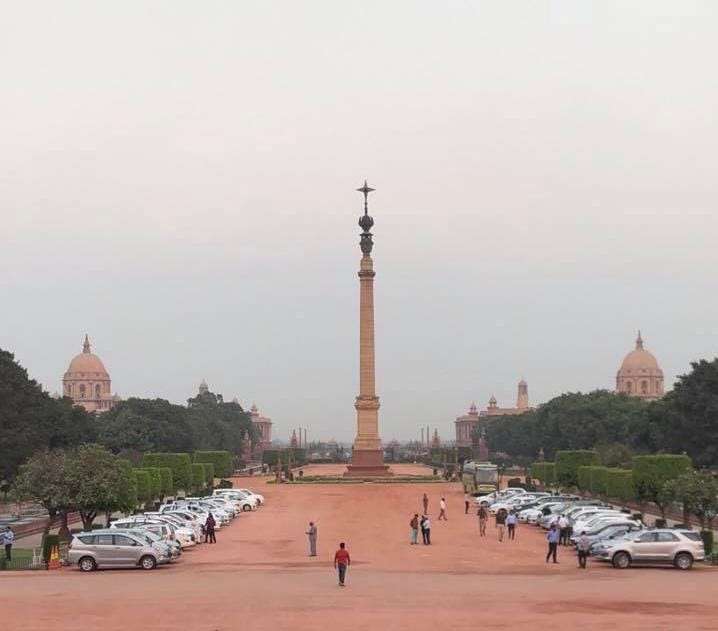
==================
REQUEST: If you enjoyed this article from 'The KBS Chronicle', we encourage you to share it with others who might also find it valuable.
Thank you for your support.
And, here’s what a “spokes_person” of a major political party tweeted: “President Biden's team says despite multiple requests India has not allowed media to ask questions of him and Prime Minister Modi after their bilateral meeting. President Biden will now take questions in Vietnam on Sept 11th from the media accompanying him. Not surprising at all. This is how democracy is done Modi-style!”— if jealous had a twitter handle……

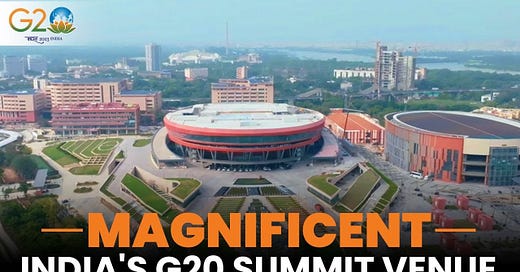



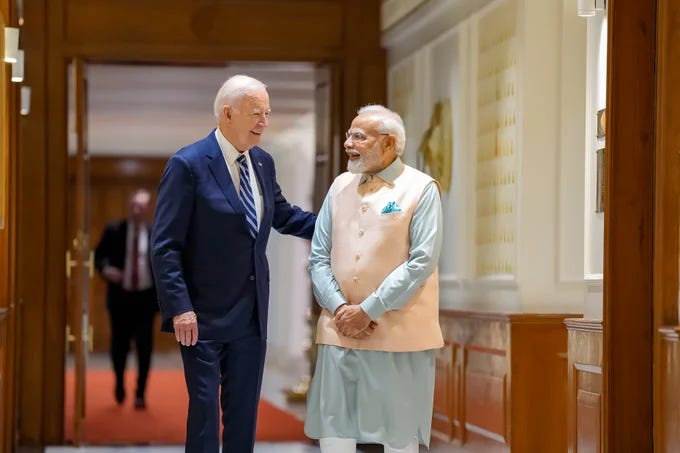
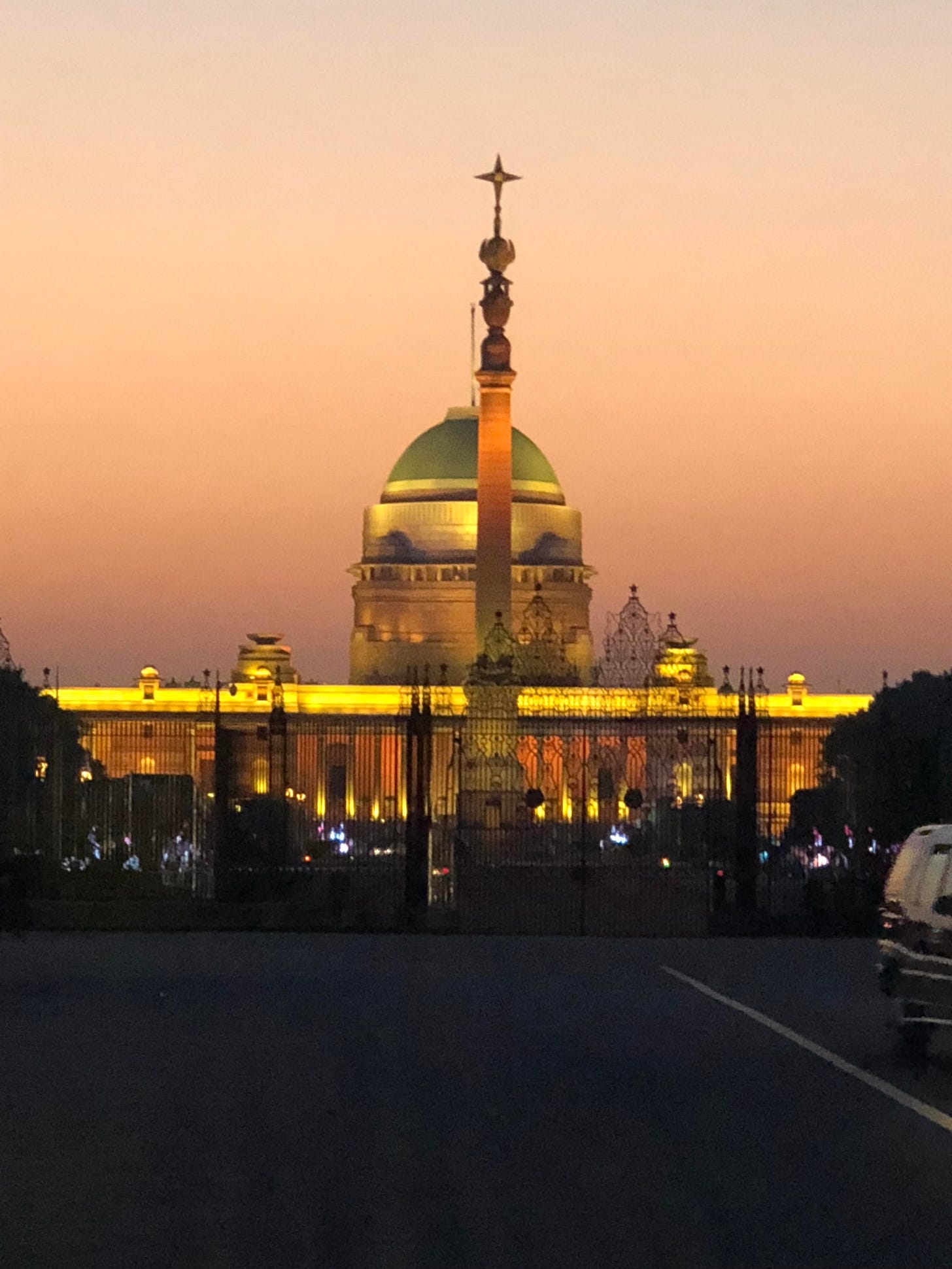
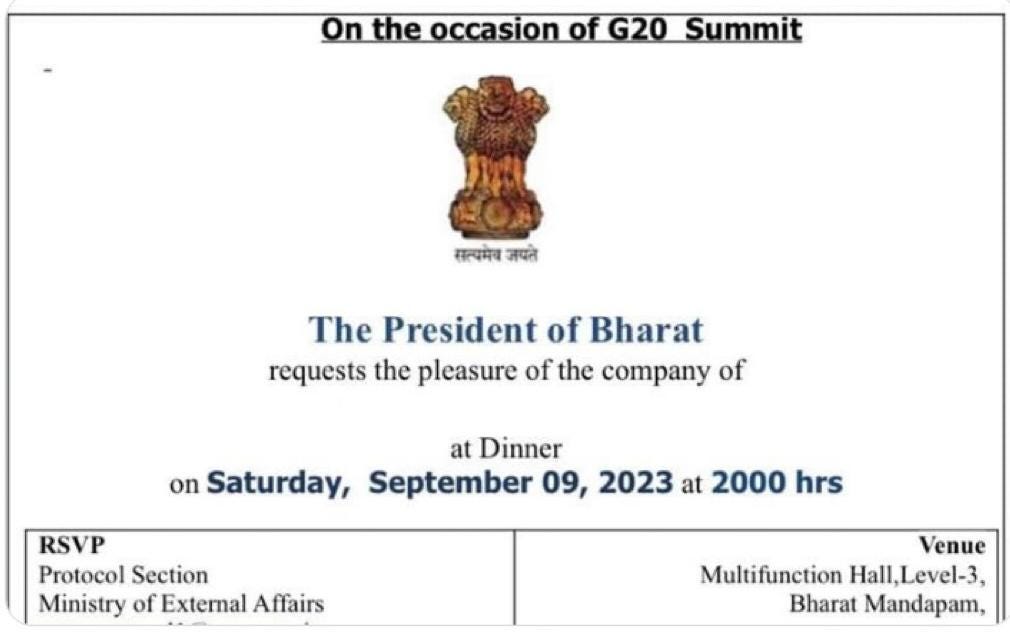
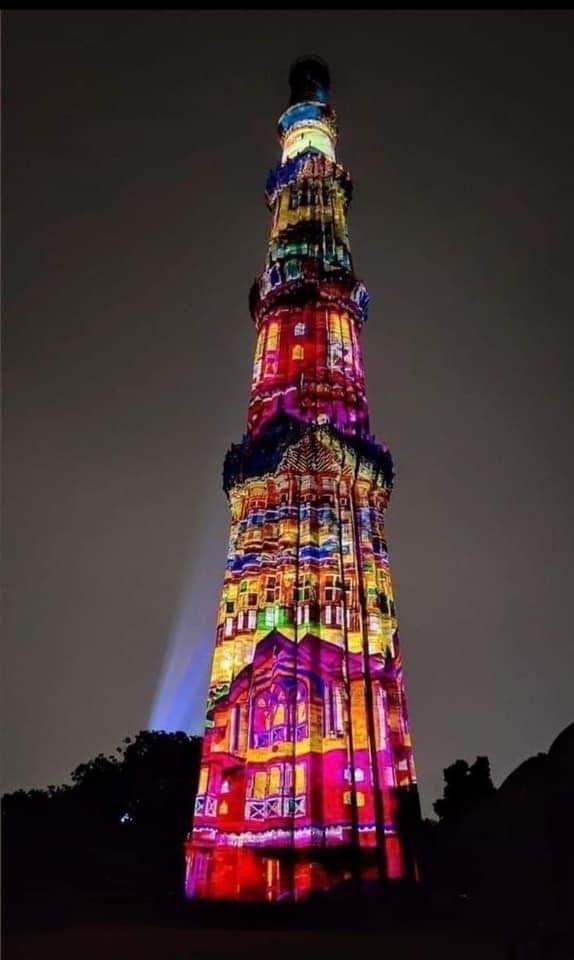
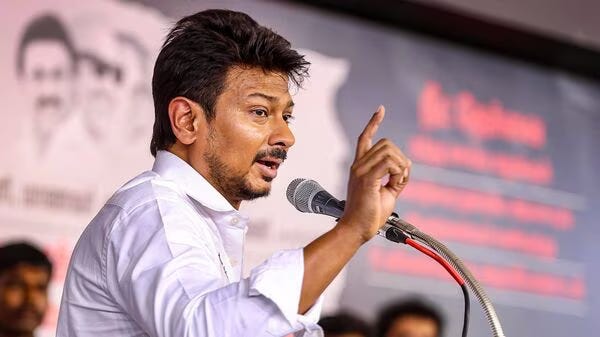
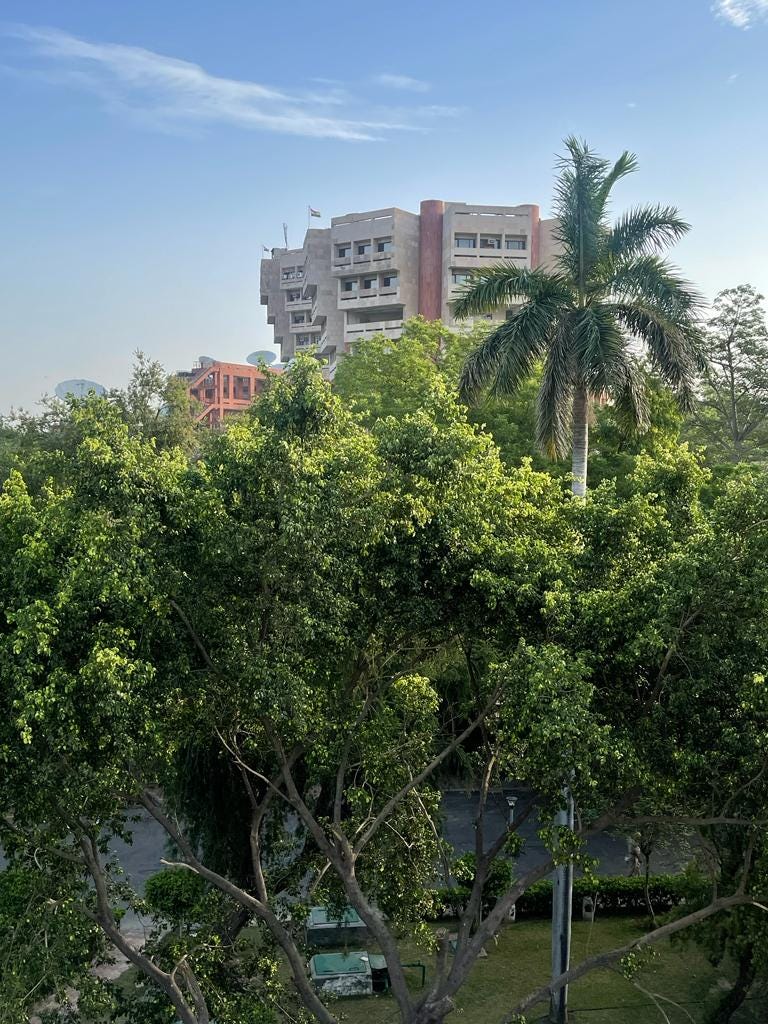
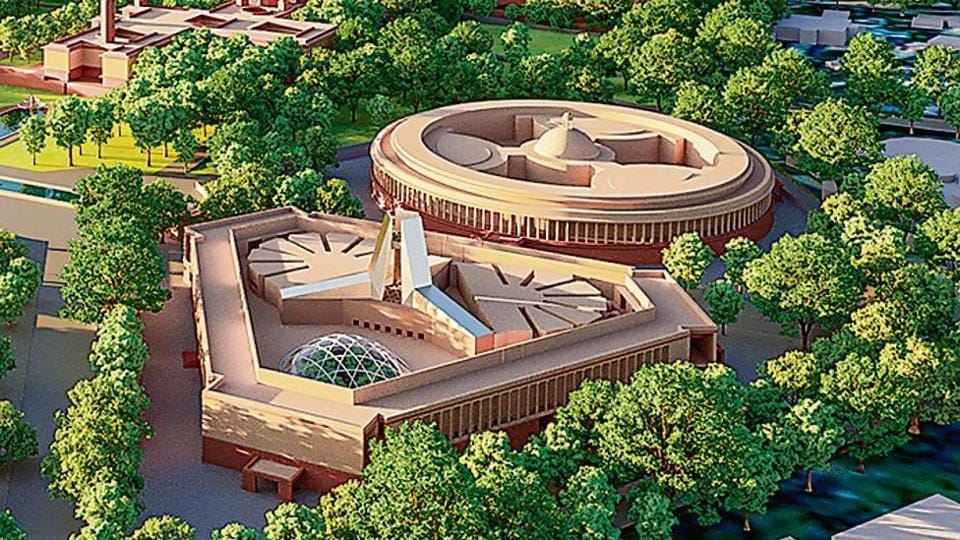
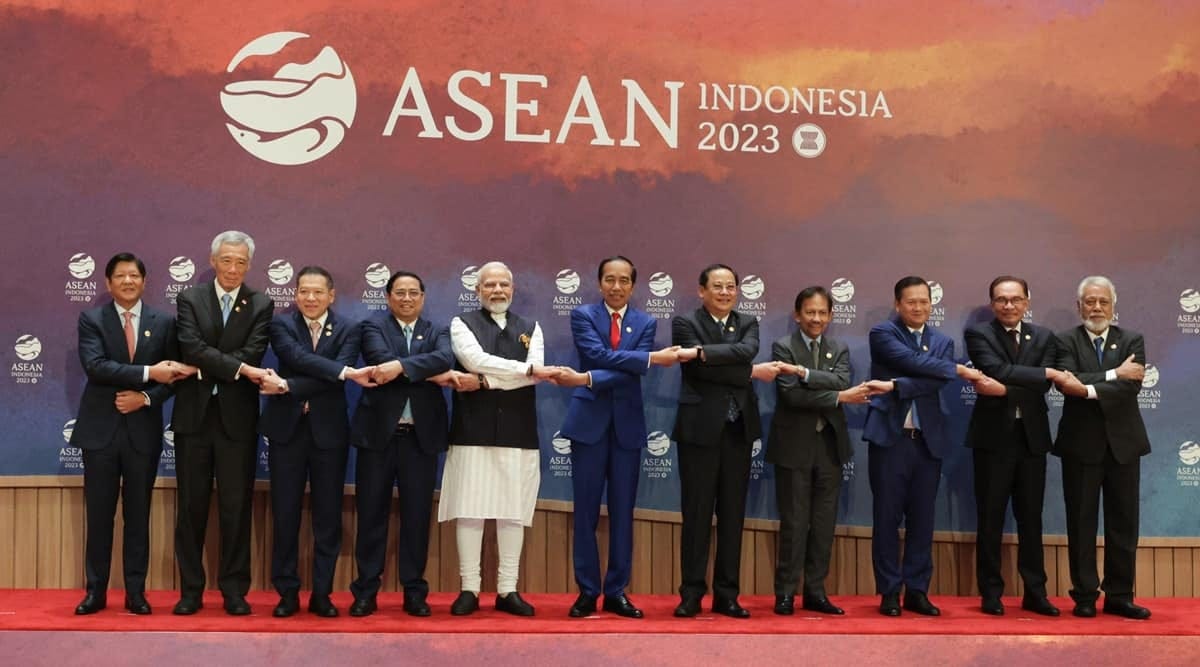
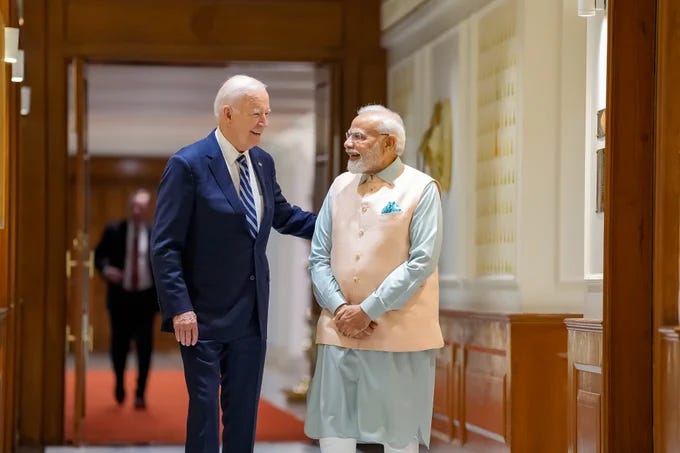
The whole truth about Modi and the meanness of his detractors.
Accolades of Modi reflect the success story of Bharat and its people.